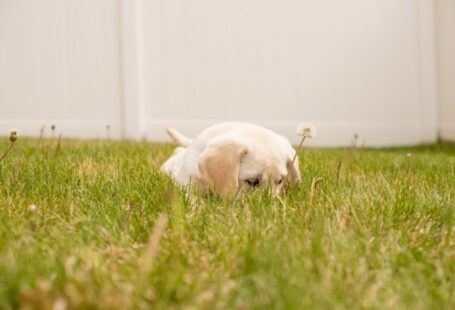Having a furry companion can bring immense joy and love into our lives. However, as with any relationship, there are challenges that come with being a dog owner. One of the most common struggles faced by pet parents is dealing with their furry friend’s bad habits. Whether it’s incessant barking, chewing on furniture, or pulling on the leash during walks, these behaviors can be frustrating and difficult to break. In this guide, we will explore effective strategies and techniques to help dog owners address and overcome their pets’ unwanted habits.
Understanding the Root Cause
Before attempting to correct a behavior, it is crucial to understand the root cause behind it. Dogs exhibit certain behaviors for various reasons, such as seeking attention, boredom, anxiety, or even a lack of proper training. By pinpointing the underlying cause of a dog’s bad habit, owners can tailor their approach to effectively address and correct the behavior.
Positive Reinforcement Training
Positive reinforcement training is a highly effective method for modifying a dog’s behavior. This technique involves rewarding desired behaviors with treats, praise, or toys, encouraging the dog to repeat the behavior in the future. By focusing on rewarding good behavior rather than punishing bad behavior, dogs learn to associate positive outcomes with certain actions, making them more likely to exhibit those behaviors in the future.
Consistency is Key
Consistency is essential when it comes to breaking bad habits in dogs. Dogs thrive on routine and structure, so it is important for owners to establish clear rules and boundaries and consistently enforce them. Inconsistency can confuse dogs and undermine training efforts, making it more challenging to address unwanted behaviors effectively.
Exercise and Mental Stimulation
Many behavioral issues in dogs can be linked to a lack of physical exercise and mental stimulation. Dogs need regular exercise to burn off excess energy and prevent boredom, which can lead to destructive behaviors. Providing dogs with ample opportunities for physical activity, such as daily walks, playtime, and interactive toys, can help prevent and alleviate behavioral problems.
Redirecting Negative Behaviors
Instead of simply scolding a dog for engaging in a bad habit, owners can redirect their pet’s attention to more appropriate behaviors. For example, if a dog is chewing on furniture, provide them with a designated chew toy to redirect their chewing behavior. By offering alternative outlets for their natural instincts, dogs are less likely to engage in destructive behaviors.
Seeking Professional Help
In some cases, breaking a dog’s bad habit may require the expertise of a professional dog trainer or behaviorist. These professionals can assess the underlying causes of a dog’s behavior and provide tailored training plans to address and correct the issue effectively. Seeking professional help can be particularly beneficial for more severe or persistent behavior problems.
Patience and Persistence
Breaking a dog’s bad habit takes time, patience, and persistence. It is important for dog owners to remain calm and consistent in their training efforts, even when faced with setbacks or challenges. Celebrate small victories along the way and stay committed to helping your furry friend overcome their unwanted behaviors.
Rewards and Encouragement
Positive reinforcement is a powerful tool in shaping a dog’s behavior. Remember to praise and reward your dog for displaying desired behaviors, even small steps in the right direction. Encouragement and positive feedback can motivate dogs to continue practicing good habits and strengthen the bond between owners and their pets.
In conclusion, breaking bad habits in dogs requires understanding, patience, and a proactive approach. By addressing the root cause of a dog’s behavior, using positive reinforcement training, maintaining consistency, providing adequate exercise and mental stimulation, and seeking professional help when needed, dog owners can help their furry companions overcome unwanted behaviors and foster a harmonious relationship based on trust and respect. With dedication and commitment, pet parents can guide their dogs towards a happier and more well-behaved life.





